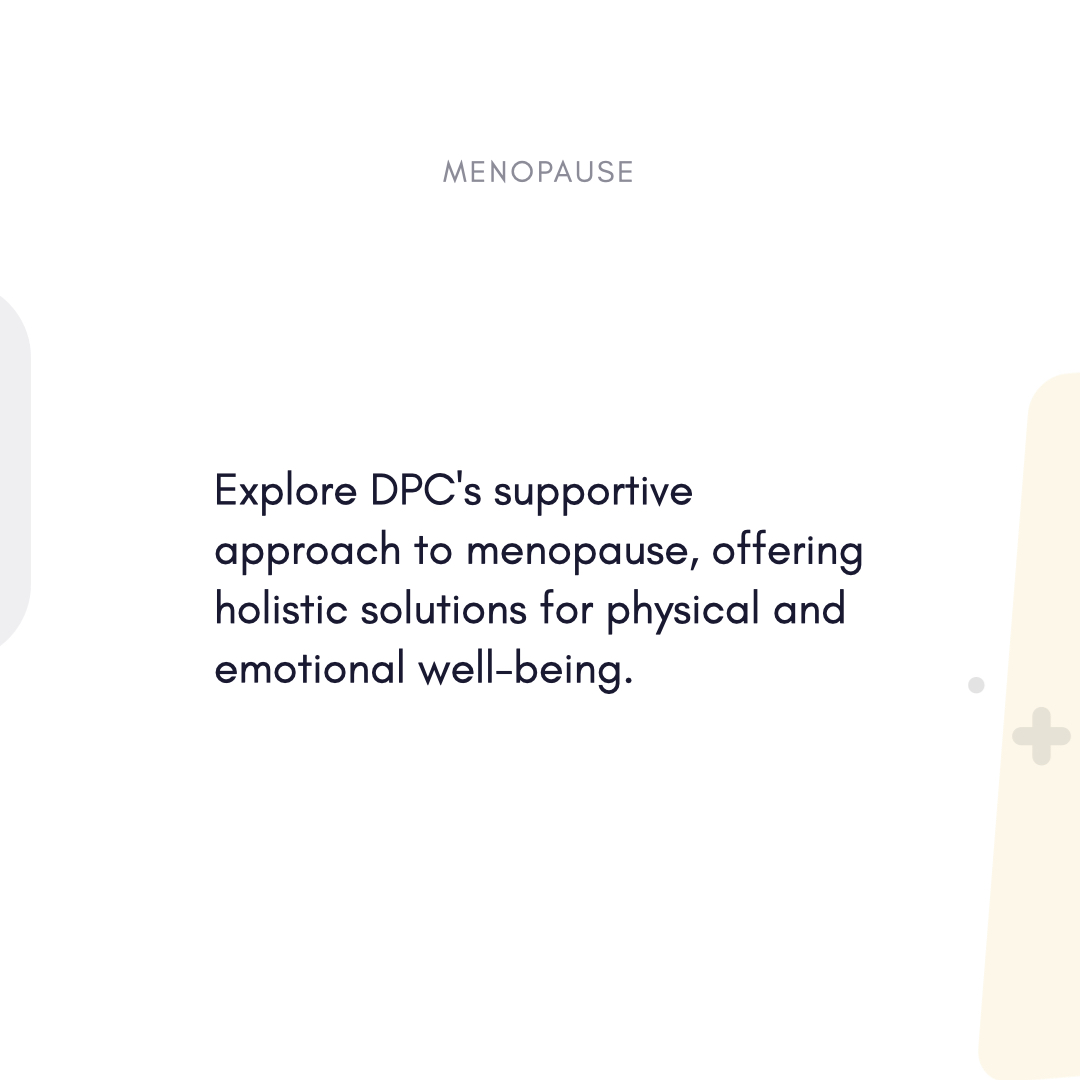Menopause and Direct Primary Care (DPC): Personalized Support for a Smoother Transition
Hot flashes that strike midway through a meeting. Nights spent whirling through sheets drenched in sweat. Swings of mood akin to a rollercoaster. For more than a million women starting menopause every year, these symptoms affect not only convenience but also self-confidence, relationships, and employment. Menopause is sometimes written off as "just part of aging," in which case women are left to negotiate this change alone in traditional healthcare. Direct Primary Care (DPC) offers a better approach, though: with tailored, sympathetic treatment meant for this transforming stage, it helps you take control. Let's investigate how.

Recognizing Menopause
Usually falling between ages 45 and 55, menopause marks the end of menstrual cycles. Reduced oestrogen causes symptoms including:
- Vasomotor problems: Hot flashes and nighttime sweats
- Psychological influences: Mood fluctuations, nervousness, brain fog
- Physical changes include weight increase, vaginal dryness, joint pain.
Long-term hazards:
- Osteoporosis, heart disease, incontinence in the urine
Minimizing symptoms and safeguarding long-term health depends on proactive, customized treatment, emphasizes the North American Menopause Society.
DPC Changes: Management of Menopause
Operating on a membership model usually 50–150 USD/month, Direct Primary Care (DPC) provides unlimited access to your physician for a set fee. This means for menopause sufferers no hurried visits, no surprise bills, and a care plan as particular as your experience.
1. Customized Approach Based on Experience
Using evidence-based guidelines, DPC providers craft customized plans including:
- Replacement Therapy for Hormones (HRT): Designed oestrogen/progesterone schedules to alleviate bone loss and hot flashes, under regular safety monitoring.
- Diet plans high in phytoestrogens, stress-reducing activities (such as yoga or meditation), and sleep hygiene practices all help.
- Non-Hormonal Choices: For women unable of using HRT, alternatives including SSRIs, gabapentin, or herbal supplements—e.g., black cohosh.
- Your doctor explores your medical history, preferences, and goals—whether your top priorities are symptom relief, bone health, or mental clarity—in 30 to 60 minute visits.
2. Reasonably Priced, Clear Treatment
- DPC saves money by using labs (such as hormone panels, bone density scans) and drugs with wholesale prices.
- Preventive emphasis helps to avoid expensive ER visits for palpitations or other severe symptoms.
- Your membership covers all hidden fees for follow-ups and urgent calls.
3. Complete Help for Body and Mind
Menopause is more than just a physical change. DPC combines:
- Mental Health: Working with therapists for depression or anxiety brought on by hormonal changes.
- Advice on pelvic floor exercises, vaginal moisturizers, Ospemifene for dryness.
- Community Resources: Support programs or seminars meant to fight isolation.
Personal Success Stories from Real Life
- Case 1: Linda, 49, battled terrible hot flashes during business presentations. Her former physician wrote a normal HRT prescription, but side effects made her migraines worse. Her DPC doctor changed her estrogen recipe, included magnesium supplements, and taught her cool-down techniques. Her hot flashes dropped by sixty percent in a month.
- Case 2: Fears about breast cancer drove 53-year-old Rita away from HRT. For nighttime sweats, her DPC provider created a non-hormonal regimen including cognitive behavioral therapy (CBT), vitamin D, and strength training. She feels empowered to control her health now and sleeps through the night.
Ask Questions About Menopause and DPC.
- Can DPC treat complicated menopause cases?
- A: Surely. DPC doctors treat problems like osteoporosis or cardiovascular risks in tandem with gynecologists, endocrinologists, and dietitians.
- Q: During menopause is DPC worth the expenses?
- A: Yes. Avoiding co-pays, inflated drug prices, and pointless specialist referrals saves members 20–40% yearly.
- Q: Suppose I need a mammogram or bone density scan?
- A: Usually at a fraction of insurance-based costs, DPC clinics negotiate self-pay rates for labs and imaging.
Why DPC Is a Win for Menopause Patients
The American College of Physicians supports DPC because of its patient-centered approach, which is essential for treating complex diseases including menopause. Rewards include:
- Precision Care: Customized plans follow recommendations from Menopause Society.
- Same-day visits change treatments as symptoms change.
- Education on long-term risk reduction, lifestyle changes, and symptom tracking helps one become empowered.
Take Back Your Life Past Menopause.
There is no "just live with" for hot flashes or sleepless nights. Using DPC helps you find a partner who listens, innovates, and walks with you through this change so you might flourish rather than merely survive.






